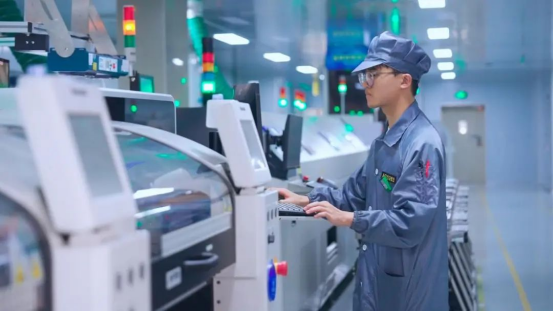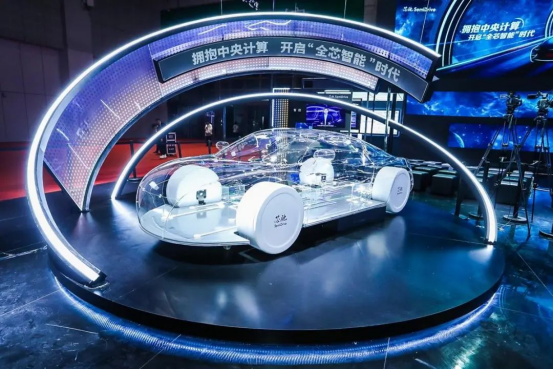Amid the accelerating global shift toward automotive intelligence, Chinese auto parts suppliers are demonstrating remarkable innovation capabilities. From providing critical components to co-developing next-generation intelligent driving systems, leading domestic smart vehicle tech companies are strengthening their global competitiveness through deep collaboration with international automotive brands.
In recent months, numerous partnerships between domestic and international automakers and tech firms have come to fruition. This month, BMW Group announced a partnership with Chinese autonomous driving company Momenta to jointly develop AI large-model-based driver assistance software. Tailored for the Chinese market, this system will offer full-scenario, point-to-point assisted driving features, eventually enabling intercity travel from parking spot departure to destination parking.
Similarly, in April, German automotive technology giant Bosch announced a major collaboration with Beijing Horizon Robotics. The two will co-develop next-generation multi-functional camera systems based on the Journey 6B chip and upgrade driver assistance systems using the Journey 6E/M chips. Christoph Hartung, President of Bosch’s Intelligent Driving and Control Systems, stated: “China has become a global hub for automotive intelligence innovation.” His remarks aptly reflect China’s growing influence in the smart automotive sector.
This wave of collaboration continues to gain momentum. Dongfeng Nissan previously announced an expansion of its strategic partnership with Momenta to develop advanced autonomous driving solutions based on large-scale AI models. ECARX has also signed an agreement with Volkswagen Group to provide smart cockpit solutions for both the Volkswagen and Škoda brands.
“These partnerships signal an important trend,” noted Zhang Yongwei, Vice Chairman and Secretary-General of the China EV100. “China is transitioning from being merely a consumer market to becoming a global center for technological innovation and supply chain development.” He emphasized that multinational automakers need to reassess their China strategies and deepen cooperation with Chinese suppliers.
This transformation is especially evident in the auto parts sector. Zhang Haizhou, Chief Brand Officer at DaoYuan Technology, stated: “It’s becoming increasingly common for Chinese suppliers to co-develop intelligent driving systems with foreign automakers.” He noted that the company has moved beyond its traditional supplier role, establishing partnerships with over 30 globally renowned carmakers and delivering more than 3 million sets of positioning sensor systems.


DaoYuan Technology employees at work in the workshop. / Courtesy photo
In the chip sector, collaborative innovation is also thriving. Chen Shujie, Vice President of SemiDrive Technology, explained: “Joint development requires a deep understanding of automotive electronic architecture and close cooperation with OEMs.” Currently, SemiDrive has established joint labs with SAIC Volkswagen and other automakers to co-develop intelligent vehicle hardware-software platforms.


Automotive chip products on display by SemiDrive Technology / Courtesy photo
Wu Songquan, Senior Chief Expert at the China Automotive Technology and Research Center, noted that the automotive industry is undergoing a profound transformation in its supply chain due to the “New Four Modernizations” (electrification, intelligence, connectivity, and sharing). “The traditional linear supply chain is evolving into a networked ecosystem, and OEMs must shift from being supply chain leaders to ecosystem coordinators.”
He further emphasized that with increasing reliance on key supplier technologies, OEMs must establish symbiotic relationships with suppliers, characterized by deep joint R&D and shared risk. “Competition in supply chains is transitioning to competition in ecosystem capabilities. As a result, OEMs must act as coordinators and co-builders of the ecosystem. Deep collaboration and co-development between OEMs and parts suppliers have become inevitable.”
Furthermore, as China’s smart automotive supply chain becomes increasingly robust and stable, international automakers are recognizing the value of Chinese partnerships. “For global brands, shipment volume is a key factor in selecting partners because it reflects product reliability and stability,” Zhang Haizhou explained. He highlighted that the widespread application of assisted driving technologies in the Chinese market offers valuable opportunities for testing, validation, and mass production, thereby accelerating product maturity.
Declaration: This article comes from China Daily. If copyright issues are involved, please contact us to delete.